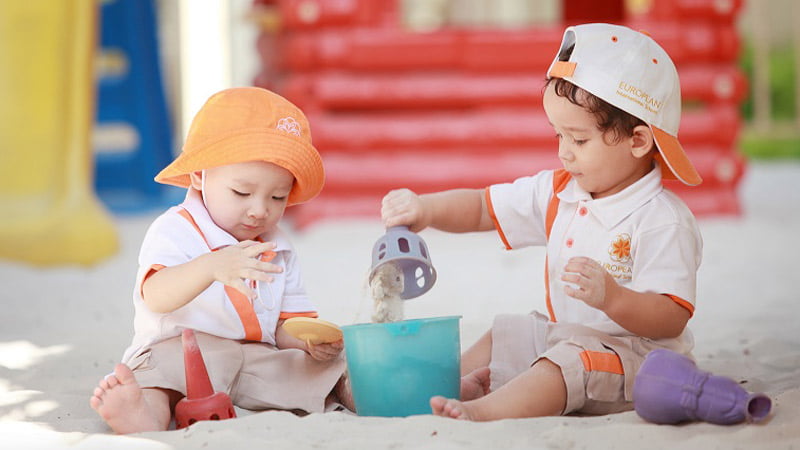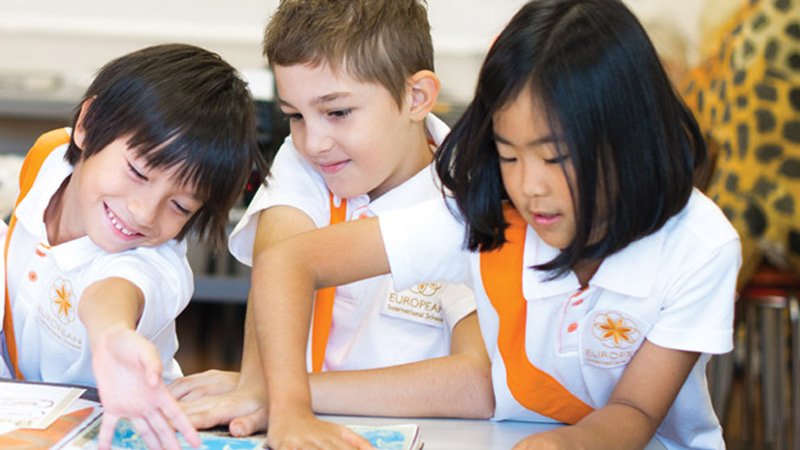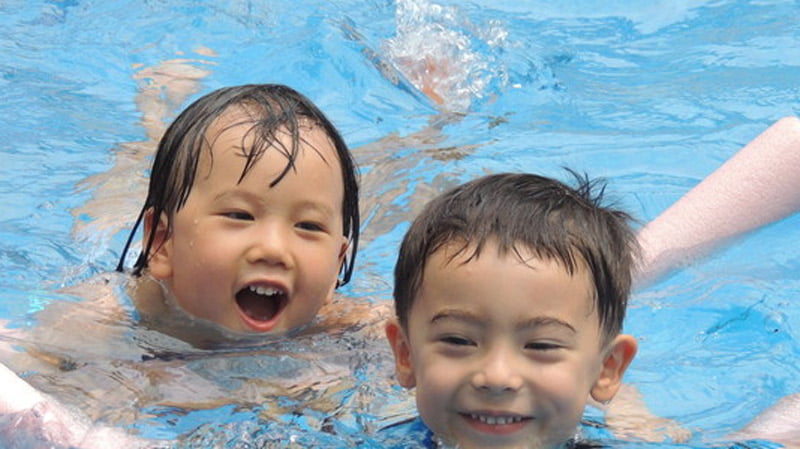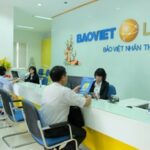Evidence is growing that early childhood education provides significant advantages for very young children. A study by the U.S. Society for Research in Child Development found that early childhood education improves early language, literacy, and mathematics skills for young children. The same study cited that research showed children who attend early childhood education centres have fewer behavioural problems, are less timid and more attentive once they enter kindergarten.
The Nobel Education Network knows that a high quality child care programme can have a positive influence on children’s development and school readiness, by providing valuable educational and social experiences. The Toddler programme at European International School Ho Chi Minh City (EIS) has been specifically designed for two to three-year-olds, to support English language learning, socialisation and international mindedness.

“Research has shown that the earlier children are exposed to new things such as language, culture and people in a positive way, the more flexible, tolerant and understanding they are as they grow,” says Jo Roberts, Head of Early Years at EIS. “Because we are an international school, our students gain an understanding and acceptance of children from all different countries and backgrounds.”
The EIS Toddler programme combines a strong focus on English language development and communication skills with the ethos of caring for others.
“Our language of instruction is English, so toddlers are immersed in an English speaking environment the entire time they are with us,” says Ms. Roberts. “We also emphasise activities that support language acquisition and speech development alongside social skills.”
All the teaching staff in Toddler classes at EIS speak English, so the children are continually learning the language through the context of their daily activities. Educators help accelerate English language learning by encouraging children to use words during interactions with teachers and friends, as opposed to signing or using physical actions.
The programme supports school readiness by following a curriculum aligned with the globally recognised International Baccalaureate (IB) Primary Years Programme. “The children are exposed to the values of the IB as soon as they start and quickly begin to understand the importance of embodying the learner profile,” says Ms. Roberts.

Of course, in choosing an early education centre, safety is a key factor. “Parents want their children to feel secure,” says Ms. Roberts. “They want to know their child will be looked after and well cared for, which is something we do particularly well at EIS.”
The villa-style campus at EIS creates a warm and welcoming environment where children feel secure and happy. The teachers and assistants have extensive experience working with young children, and the low student-to-teacher ratio ensures that each child receives quality individual care.
“The programme is designed to be fun, interactive and engaging, with lots of sensory activities to help the children explore the world around them,” says Ms. Roberts. “Our facilities also include a pool and a well-equipped music room, so the children can enjoy swimming and music classes with specialist teachers each week.”

“We embrace play as a learning tool,” she says. “For example, the children have a dress-up area where they can put on costumes and role play with their friends. This not only enhances language acquisition, it also develops social and collaborative skills.”
Modelling with clay is another activity that offers hidden benefits. Manipulating the clay helps develop muscles, improves dexterity, supports hand-eye coordination and helps build concentration skills and extend attention span.
In the same way, music lessons bring significant benefits to early childhood development. Singing songs and rhymes increases English vocabulary, while playing percussion instruments and dancing helps young children learn about rhythm and movement.
“We’ve created a programme that combines the best of both worlds,” says Ms. Roberts. “The children spend their days doing activities they enjoy, and at the same time they are learning English and becoming more confident and capable. Every day they are preparing for their future success.”
Parents interested in learning more about the Toddler programme at European International School Ho Chi Minh City can contact Ms. Khanh at +84 28 7300 7257, or visit eishcmc.openapply.com to schedule a school tour.






